Type City, bar name or keyword...
How To Order Wine In A Restaurant Like A Pro
Order wine in a restaurant without getting flustered and looking like a knob can be tricky. So we spoke to some of the big dogs in the wine world to get their fool-proof tips on how to order wine like a pro.
Navigating £££
All you want is a delicious glass of wine, and then suddenly you're handed a bible sized menu of vinos from around the world, priced from affordable, all the way up to "which vital organ should I sell to pay for this?". Navigating the price points of wine is like playing hopscotch on a minefield. How much is too much? And does cheap always means the wine is going to taste like sh*t? There are definitely a few myths floating around when it comes to wine pricing, and our pros were more than happy to give them a good debunking.
True or False: The second cheapest bottle on a wine list is usually the worst value?
It's probably one of the most common misconceptions in the wine world that the second cheapest bottle on a menu is actually the worst value. This antiquated assumption seems to be based on the idea that to avoid looking "cheap" by ordering the house wine, diners will pluck for the second cheapest wine, and this is a good opportunity for restaurants to make more profit. Well, this might be true for a 'Spoons, but the Sommeliers we spoke to have very different ideas.
"I think it's one of those unfortunate misconceptions about wine lists," admits Bradley Tomlinson, the sommelier at Michelin-starred Leroy in Shoreditch. "Even at the entry-level, the wines should be good quality and of good value. In fact, [at Leroy] we spend more energy tasting/buying and thinking about wines at the entry end. Buying and selling posh plonk is easy."
Szabolcs Ménesi, Head of Wines at The Dorchester was in agreement; "Most good sommeliers will create a list that is a collection of good wines no matter the cost. For example here at The Dorchester, every wine on the list is the best for its price range."
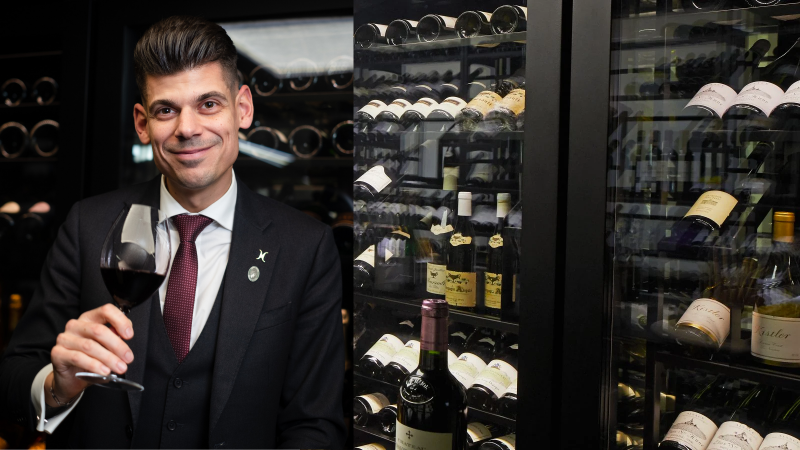
How do you know if a bottle is worth splashing out on?
It's easy to assume that if a bottle has a high price tag, the liquid inside it is going to be epic. But you know what they say about people that assume, right?
Szabolcs Ménesi warned us against the myth that sommeliers are just salespeople looking to fleece you out of your hard-earned cash: "Good sommeliers will find the right wine for you for the occasion. If you are not confident in the wine you are selecting, you will need to have faith in your sommelier at the restaurant."
"If the occasion and the purse strings allow, I'd say go for it!" says Tomlinson. "As for whether a particular bottle is worth it - ask your sommelier. A decent one will always guide you well. And there are (or so I hope) more decent ones of us out there than not."
Daniel Alvarado, the sommelier at Dinings SW3 who has pulled on his experience working in hotels across Europe to curate an old-world focused menu that compliments head chef Masaki Sugisaki’s Izayaka menu, advised that "a rare vintage or a great producer that cannot be found on the market anymore is worth splashing out for."
Is there such a thing as "too cheap" or "too expensive" when it comes to wine?
When it comes to ordering wine, Tomlinson's YOLO attitude aligns almost perfectly with BarChick's. "Cheap wine is for off-licenses and back-packing holidays. Entry-level wines are for restaurants, bistros and good bars. There is no such thing as too much when someone else is paying. Look for bottles you don't recognise. Life is short. All wine turns to vinegar. Drink now. Dither later."
What a king.
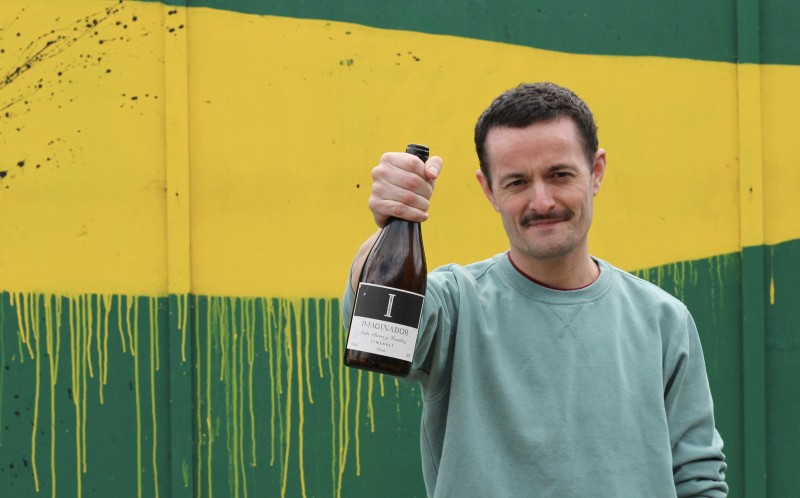
How can you let your server know you have a budget while being subtle?
You're on a date and want to impress them by ordering a bad-ass wine, but you don't want them to know your budget. We got you. Chivalry ain't dead, but neither is your overdraft limit. There are a few tricks to circumvent an awkward convo when the bill comes, and all the sommeliers we chatted to are savvy to them.
"This is simple," Szabolcs Ménesi says. "Guide the sommelier with the menu by showing a wine price in the range you are looking for and ask for something similar to this, but matching your taste."
Meanwhile, Kelvin McCabe, the sommelier and master of sake at Hackney Coterie, thinks there's no harm in planning ahead. "Call ahead for advice and have the bottle ready on the table or request the current wine list to be emailed to you and pre-order or be prepared for the options available." That's some serious Virgo energy Kelvin's giving off, and we're v. into it.

Decisions decisions
All you want is a delicious glass of wine, but a heavy wine menu featuring dozens of wines in every category imaginable can be overwhelming. How should you go about making your wine choice?
What should you look for when ordering?
"Knowledge and enthusiasm on the part of the server is a good place to start," advises Helen Hall, co-founder of Peckham Cellars wine bar & restaurant in Peckham. "Ask them what wines they have tried and enjoyed and what their favourites from the list are. Then direct them with styles and flavours that you know you like."
What makes a "House" wine, and is it always a safe bet?
If a restaurant is going to assign one or two wines to represent the 'house', you'd imagine it's gonna be pretty good. But what criteria has it matched in order to become the 'house' wine, and is it always going to be good?
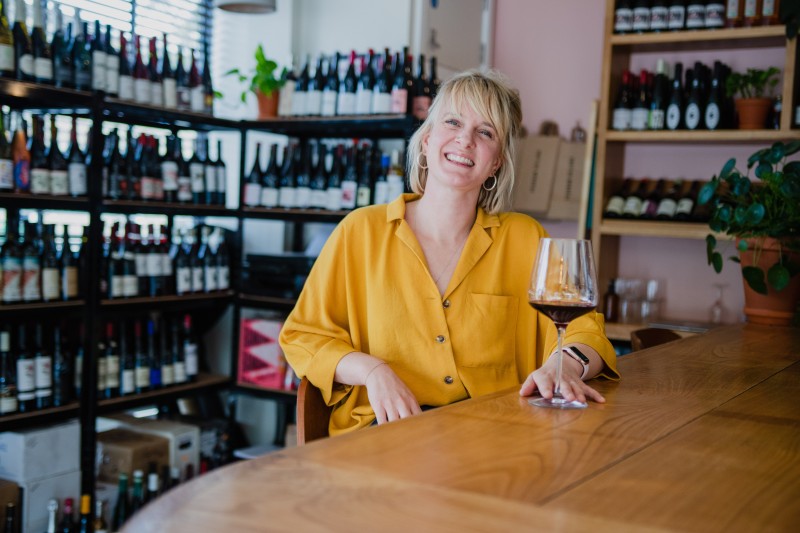
"House wine generally means the cheapest wine. Often restaurants won't list the cheapest wine as the 'house', it will just be the first one on the list." Says Helen, who offers the "house" wines at Peckham Cellars on tap, a sustainable option for venues when offering wine usually served by the glass due to its zero contact with oxygen meaning it stays fresh. "Kegged wine is much more economical for producers and importers, and you can get amazing wines at great prices. This means we can offer some incredible wines at a great value, and it's more sustainable, so better for the planet." However their house wine isn't just selected on price. "We spend more time choosing our 'house' wine than any other wine on our list at Peckham Cellars, and we are really proud of it. It's a jumping-off point for the rest of the list, and even if it's cheap, it still has to represent good value."
McCabe was keen to note that the house wine doesn't always need to be the cheapest on a menu. "It should be a wine that reflects the quality and ethos of the restaurant or pub. The best examples are own-label bottles sourced directly from the growers."
Tasting, sniffing and sending it back... what's the deal?
That awkward moment when your server asks if you'd like to try the wine... and you don't know wtf you're meant to do. We've all been there. You swill it around the glass, practically snort it trying to give it an enthusiastic sniff, and then you slurp it through your teeth... because, well... that's what they do in the movies, right? But what are you actually meant to be looking for, and what if you just don't like it?
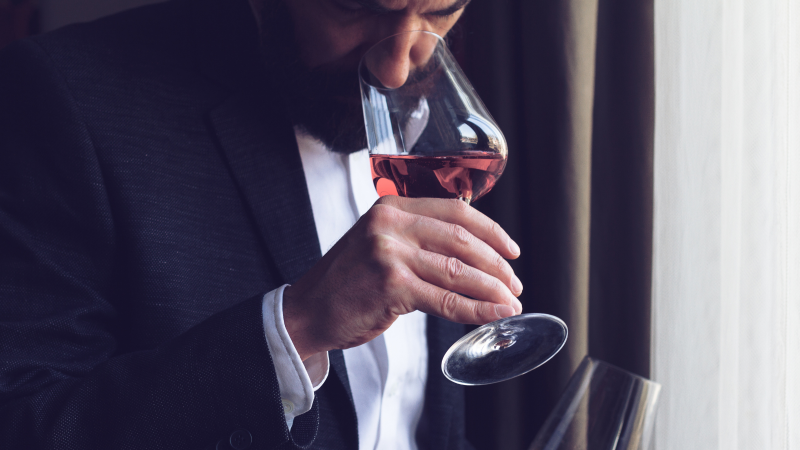
McCabe, whose wine list at Hackney Coterie heavily features organic and minimal intervention bottles with a focus on discovery, is all about customer satisfaction when it comes to the tasting of the wine. "The most important thing is: do you enjoy the wine? It's called the hospitality industry for a reason! You should be hosted to enjoy your experience. And yes, you should be allowed to return a bottle not to your liking -- and find a suitable alternative"
Of course, when it comes to tasting, there are plenty of factors to take into consideration that may affect your enjoyment, he continues. "Brushing your teeth not long before you arrive, having just drunk a coffee or Negroni, even arriving late and rushed can have an effect how the wine tastes," he tells us. "Take time to smell the wine. Hopefully, there's a pleasant aroma. Consider that this is also difficult to detect if you drown yourself in a pint of your chosen fragrance! If you detect the scent of mouldy cardboard or a wet dog, check with your server! It could be a fault in the wine."
Yeah that, or you need to rethink your choice of perfume... or partner.
Helen and her team at Peckham Cellars open all their wines and taste a tiny sip before they take them to the table to avoid anyone being served a corked wine in the first place. This can be quite common practice at wine led establishments, but if the wine is opened in front of you, you should look for "a musty, damp, or unpleasant flavour, or if the flavours are dulled. Those are the characteristics you are looking for to tell if it's corked," she tells us.
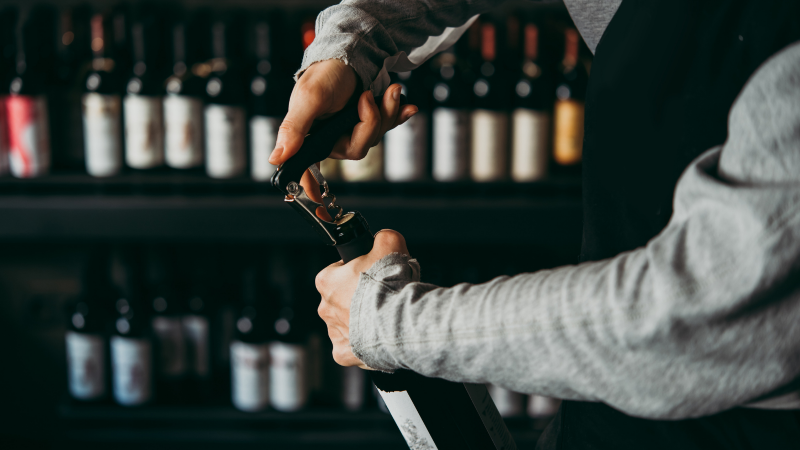
Finding The Perfect Match
Finding the right wine for your meal is like a swiping sesh on Hinge. What looks like Mr/Mrs Right for your first course might reveal itself to be a total disaster by the time you're at your mains. Some wines won't last the distance, while some will see you through right to a happily ever after, it's just about choosing wisely to make that latter outcome more likely.
Is it possible to navigate a meal of fish and red meat with one bottle?
"There's no one size fits all for pairing, however, there are a few basic things that work." Explains McCabe. "A more intense and full dish needs a wine of intensity and weight, a lighter dish needs a delicate wine. So, if, for example, you have a Dover sole and ribeye, it's practically impossible to find an exact pairing for both. If, however, you have a grilled monkfish and a ribeye the options are easier."
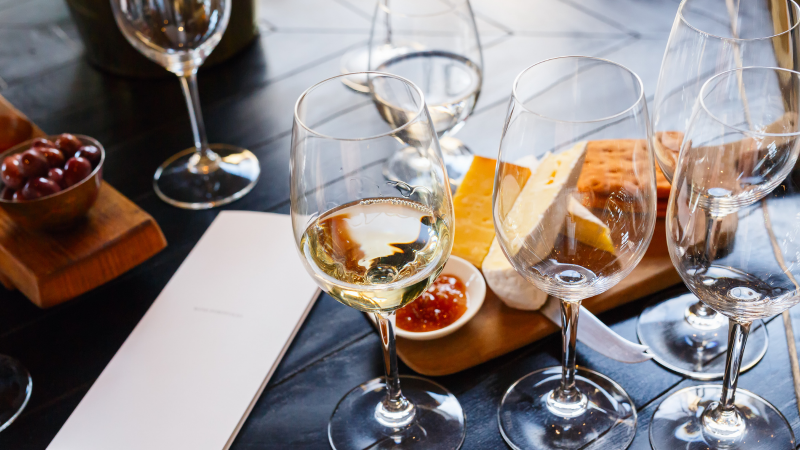
Compromise is Daniel Alvarado's advice, who, like Ménesi at The Dorchester, recommends opting for a lighter Pinot Noir to take you from fish to meat. "Sake is also a great option," Alvarado suggests.
Tomlinson hit us with a bit more optimism. "Anything is possible! Plus... there's always champagne; the great leveller, the juice of the gods! It might seem my standard answer, but ask your server or somm. If they've not bought the wine for the place, they've either drunk it or stocked it or seen it or at least know what it should taste like. We are here to help."
Just the one glass for me, thanks.
Like it or not, commitmentphobia is REAL, honey. You might just be looking for a quick fling with a glass of something sexy and tasty, but they want you to go the distance and commit to the full bottle. The problem is the selection of wines by the glass is never usually as long as the alternative. So what's the best way to make sure you're ordering a glass you're gonna love? Greg Lambrecht, founder of Coravin, the wine-preservation system that uses some awesome smart tech to access the wine in the bottle while also keeping the oxygen from hitting it, gave us his tips for ordering the best wines by the glass.
"My favourite way to enjoy wine is by the glass," he tells us. "I suggest you start by looking at the ‘wine by the glass’ list before talking to the sommelier. Sommeliers know their wines and can describe them really well to you once you have an idea of which you’re interested in. If you are feeling adventurous, I recommend asking them what they are excited about and what they are drinking, and take their recommendation."

In some restaurants, you may find yourself lucky enough to find a section dedicated to rarer or more exclusive wines by the glass served using Coravin. "The wonderful thing about Coravin in restaurants is that you are now seeing an expanding list of good fine wines and sparkling by the glass. Being able to choose from 5 to 10 sparkling wines has rarely been possible by the glass in restaurants and seeing that change happen is very exciting!"
Of course, not all restaurants excel in the singular glass offerings as others, but if you're looking to enjoy variety with several different glasses, Greg knows where you should be hitting; "I believe there is no better place to find great ‘wine by the glass’ lists than in London or Hong Kong. Aside from the Coravin Wine & Bubbles Bar, I recommend 67 Pall Mall, Trivet, Blandford Comptoir and Claret."
What's the deal with pairing wine with pud?
It might seem like overkill to turn to a sweet wine when indulging in sweet food, but baby, it works. The only question is which dessert wine should you go for?
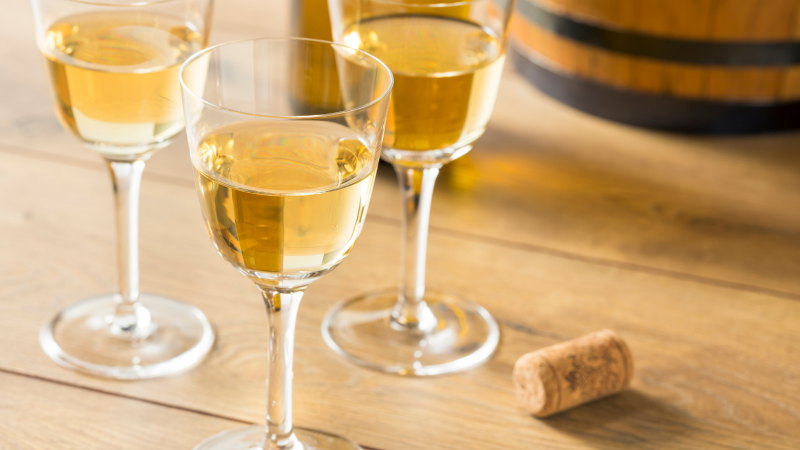
For Alvarado, the trick for pairing the right dessert wine is in the colour. "The darker wines will generally pair well with chocolate or richer puddings. The key should be the balance between acidity and sweetness with dessert wine," he tells us.
"You want to match richness with richness or lightness with lightness," Tomlinson continues. "On the pudding front it might seem too much, but a syrupy viscous nectar-like pudding needs a syrupy, viscous nectar-like wine."
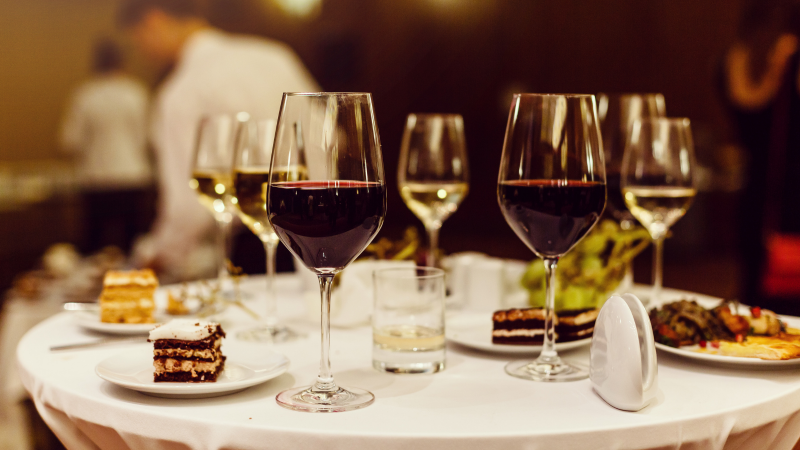
"A Coteaux de Layon, or a late harvest Riesling," is what McCabe would opt for when searching for the perfect match for desserts such as lemon tart, creme brulé or an apple tart or crumble. "Conversely, dark chocolate desserts, sticky toffee puddings, bread and butter puddings tend to be better with a fuller wine, for example, a Sauternes or Tokaji."
Meanwhile, Helen would go for "a port or a sherry such as Pedro Ximenez," when pairing with a chocolate pud. "We have an incredible wine at Peckham Cellars - East India Solera - which is a blend of Olorosso and Pedro Ximenez, which we suggest to pair with chocolatey desserts when we have them on the menu."
You've finished your meal, and there's still half a bottle left… can you take it home with you?
You've asked for the bill and suddenly realised there's still half a bottle of your wine left. Gone are the days of seeing off 3 glasses in quick succession (this isn't a student night at Infernos, yo) but you don't wanna have that wine go to waste. So can you take it with ya?
"As a rule, you can't," Helen tells us. "Generally, this violates the licence for most restaurants, but you can always ask…."
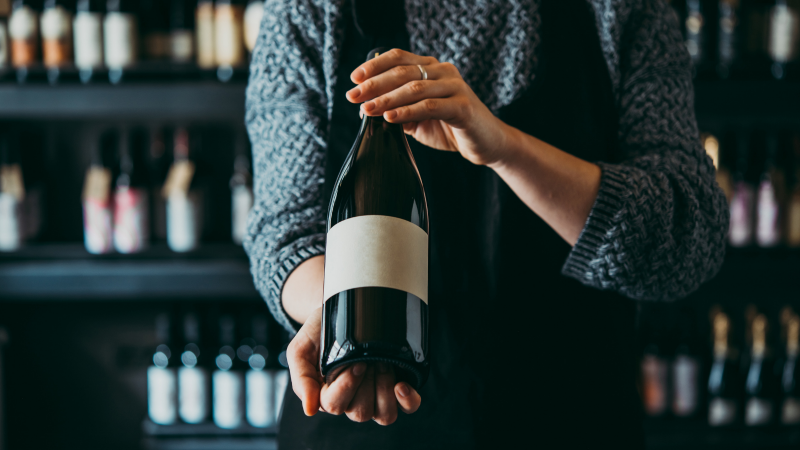
So we asked Szabolcs Ménesi and it's a "yes" at The Dorchester. "I would put the cork back in the bottle. If you are going for a very special wine and don’t want to risk not finishing it, some restaurants have a Coravin which will allow you to pour without removing the cork."
And it's an "absolutely" at Dinings SW3, and an "always and forever, yes!" at Leroy, though Tomlinson did question his ability to do his job if you get to the end of a meal without finishing your bottle. We believe in ya, Bradley.
Looking for a wicked wine bar to test out your new knowledge? Hit up a few of these cosy spots for the perfect winter night out.
or if you want something a bit different, you'll love these bars with a little je ne sais quoi!